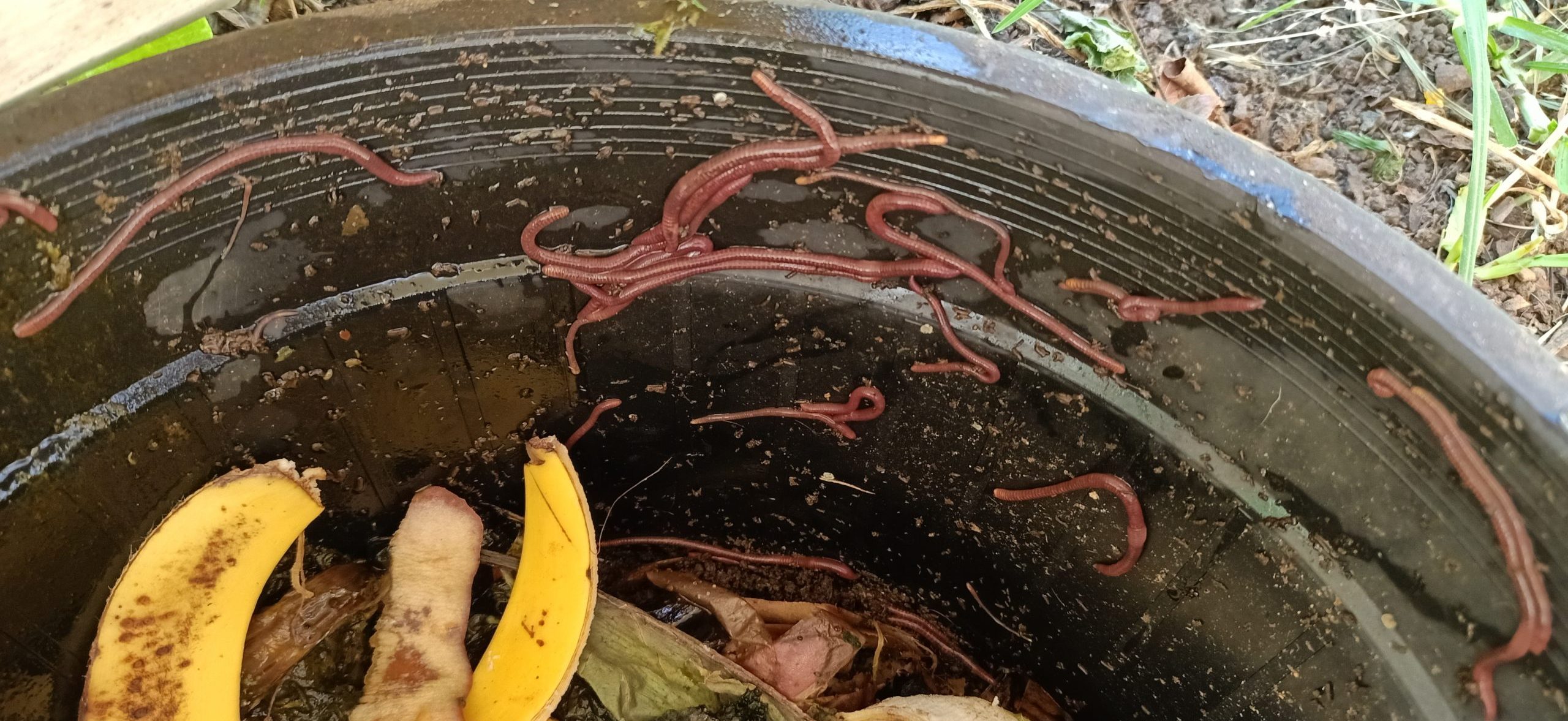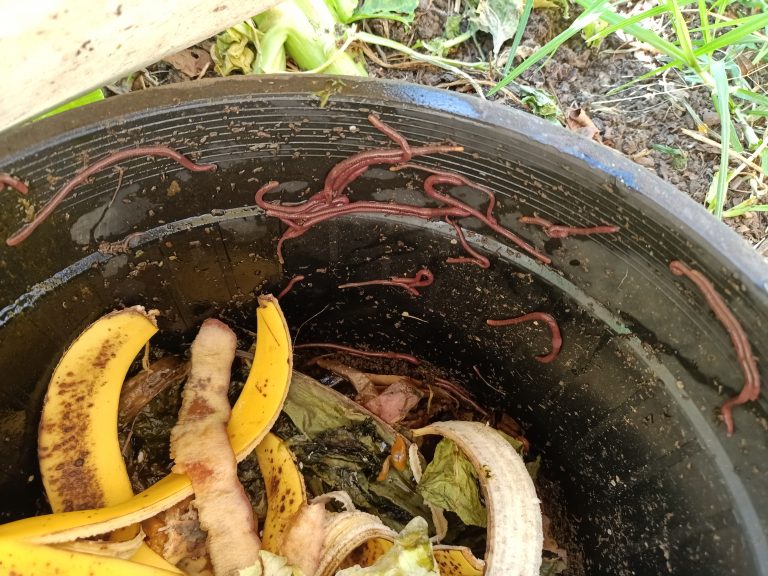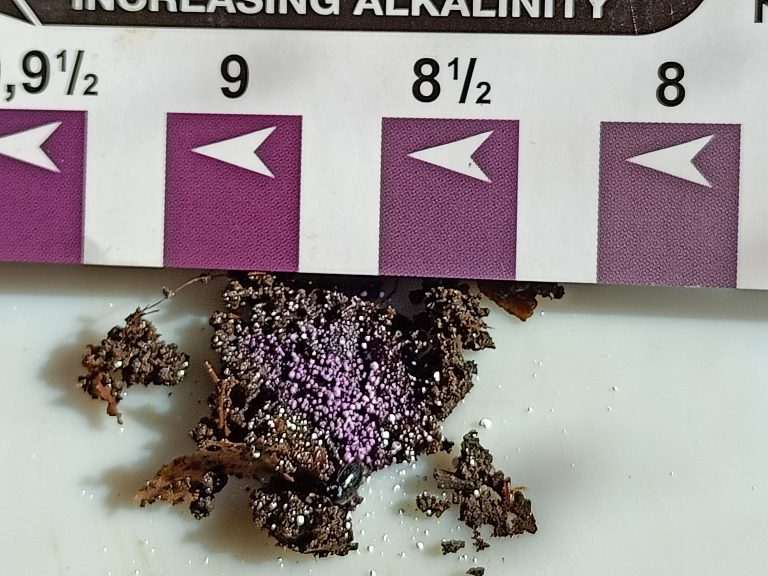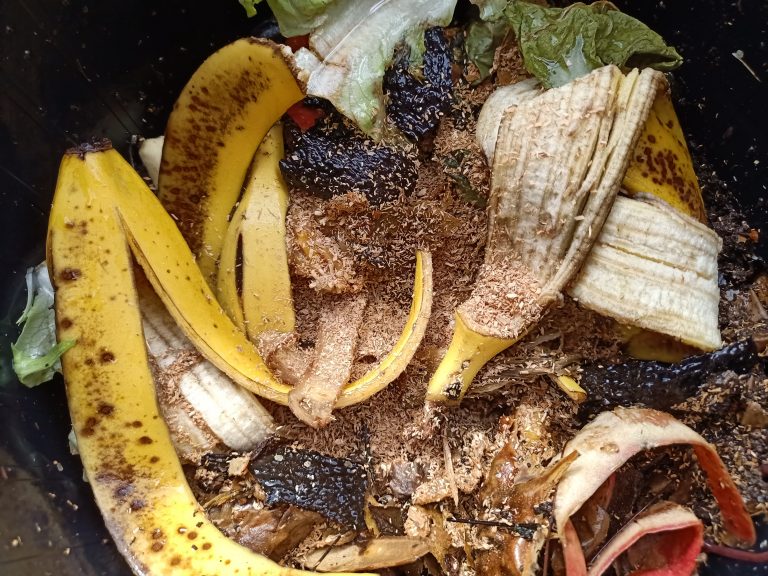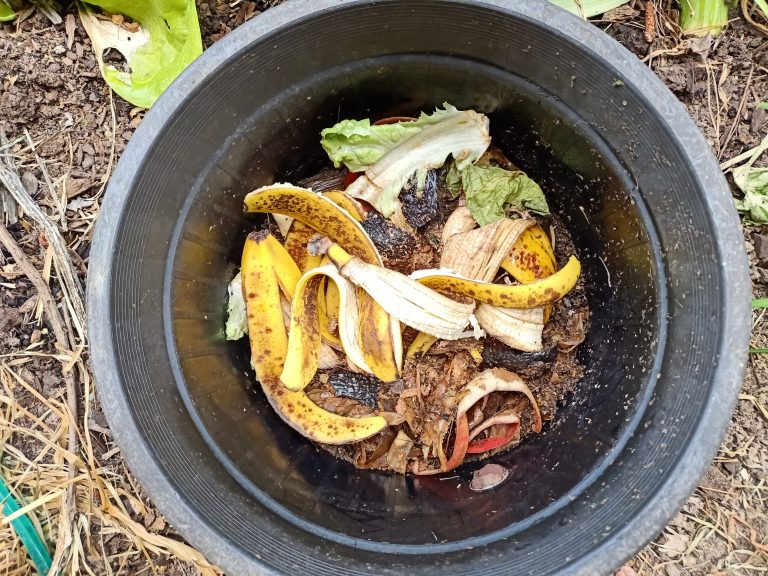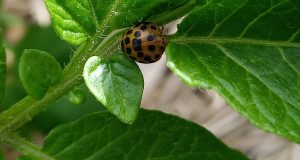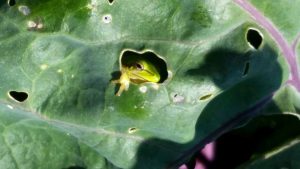This morning when I peeped inside my worm tower I was distraught to see that my compost worms, which had been as happy as clams just a few days ago, were now making a determined bolt for the exit!
What had gone wrong? Why were my little wrigglers trying to escape? Let’s take a look at what might be the issue. We will first rule out the obvious and go from there.
HUNGRY OR OVERFED?
This may seem like a “no-brainer” but is there food available for the worms to eat? Maybe they are leaving because they are hungry. Conversely, more food than the worms can eat will result in a rotting, smelly mess which can attract other pests into the worm farm and may also change the pH and increase moisture. Ideally, when you add kitchen scraps to the worm farm you should wait until they have almost finished eating what you have added before you put in more scraps.
On checking the food in my worm tower it was neither too much, nor too little. So I moved on to the next possible issue.
THE WRONG TYPE OF FOOD?
Worms don’t like citrus or onions. They do not actually cause any ill effects to the worms unless you are putting in way too much but small amounts are fine. The worms will just avoid eating the citrus or onion until they have started to break down naturally.
Adding some citrus or onion is not going to cause a mass evacuation, plus, I have not been putting either of these into my worm farm. On to the next possible problem.
TOO HOT OR TOO COLD?
Sometimes the worm farm can become inhospitable due to the fact that they are either too hot or too cold. We are in the middle of Spring here in Sydney with temperatures in the mid to high twenties (celcius) so being too cold was crossed off the list.
What about too hot? This may have been a possibility if my worm farm was above ground, however, this is a worm tower which is buried in the garden. Being buried ensures that the temperature is moderated by the surrounding soil and the worms can move in and out of the soil in my garden to find the correct temperature. I was pretty sure my worms were not too hot.
On the topic of temperatures, if the worms become too hot or too cold then they are more likely to burrow down into the soil rather than climbing up and out of the container.
Next…
TOO WET OR TOO DRY?
You want your worm farm to be moist but not soggy. Ants living in the worm farm is a sure indication that it is too dry. Add water and cover the top of the worm castings to help keep the moisure in. If you have chlorinated water then you should let it sit for 24 hours so the chlorine can burn off before you add it to the worm farm.
In a worm farm which has become too wet you need to check that the drainage holes are not blocked, stop rain from entering the farm, remove some scraps if there is too much, and stop feeding the worms “wet” scraps such as cucumber, tomato, lettuce, watermelon, etc.
A quick dig was all I needed to check that my worm tower was neither too wet nor too dry.
Now to the last thing…
TOO ACID OR TOO ALKALINE?
Worms prefer a neutral pH of about 7. It is more common for a worm farm to become acidic than it is for it to become alkaline. The addition of acidic food scraps and overfeeding can be the cause of an acidic worm farm. Raise the pH by adding ground up egg shells (bake them for 20 minutes at 200°C to kill pathogens) and remove any uneaten food.
I got my pH testing kit and was surprised to find that my worm farm had become too alkaline. It was up at around 8.5 to 9. This can sometimes be because the Black Soldier Fly has moved in but I could see no evidence of BSF larvae. Searches on Google found little information on a worm farm becoming alkaline but I did find something which indicated that too many high nitrogen food scraps can be the issue and that adding more organic matter high in carbon can remedy this.
I immediately added some sawdust, mixed it through the top layer and wet it down to ensure the worm farm wasn’t too dry. Like magic, when I checked on them only 4 hours later they had already returned to the soil and are happily munching on kitchen scraps and sawdust.
Jo

